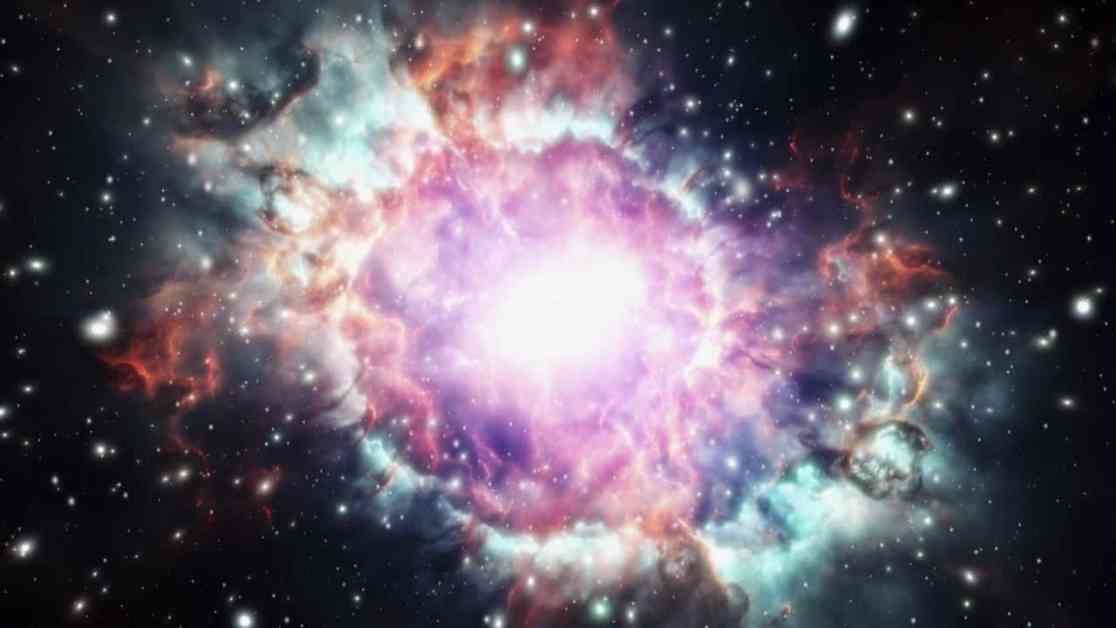The impact of a nearby supernova explosion on Earth has long been a topic of interest for scientists. These cosmic events release vast amounts of energy and create heavy elements that are essential for life. Recent research published in the Astrophysical Journal Letters sheds light on how these explosions have influenced life on our planet over millions of years.
Iron isotopes released by supernovae have been found in sea-floor sediments dating back two to three million years and five to six million years. This discovery highlights the long-lasting effects of these cosmic events on Earth. The radiation from these explosions bombards our planet, raising questions about how it may have affected life and evolution.
Implications of Cosmic Radiation
A study led by Caitlyn Nojiri from UC Santa Cruz delves into the implications of cosmic radiation on Earth. The authors note that cosmic radiation fluctuates as our Solar System travels through the galaxy. This fluctuation is influenced by the Local Bubble, a vast region of hot gas formed by massive OB stars emitting powerful winds. Our Solar System has been within this bubble for several million years, exposing Earth to varying levels of cosmic radiation.
The presence of the iron isotope Fe60 in sea-floor sediments suggests that at least nine supernovae have occurred within the last six million years. The younger Fe60 accumulation likely originated from a nearby supernova, possibly from the Upper Centaurus Lupus or Tucana Horologium associations. This discovery highlights the close relationship between supernovae and Earth’s history.
Effects on Life and Evolution
The radiation from supernovae explosions may have had significant effects on life on Earth. The study proposes that cosmic radiation could cause DNA damage, leading to mutations that drive species diversification. A recent paper found accelerated virus diversification in Lake Tanganyika coinciding with increased cosmic radiation, further supporting the idea that these cosmic events have influenced life on Earth.
While the radiation from supernovae was not strong enough to cause mass extinction, it likely played a role in shaping evolutionary processes. Understanding the effects of cosmic radiation on life is crucial for assessing its impact on Earth’s biodiversity. Researchers emphasize the need to explore the biological effects of radiation further to gain a deeper understanding of its role in evolution.
Conclusion
In conclusion, the impact of nearby supernova explosions on Earth has been both positive and negative. While the radiation from these events may have caused DNA damage and mutations, leading to species diversification, it also played a role in shaping evolutionary processes. The discovery of iron isotopes in sea-floor sediments dating back millions of years highlights the long-lasting effects of these cosmic events on our planet. Further research is needed to fully understand the implications of cosmic radiation on life and evolution.













